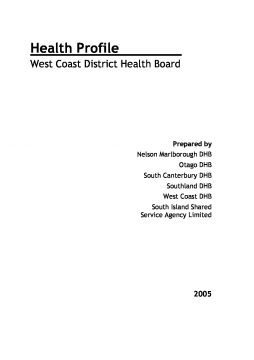This document is a technical report, updating the 2001 West Coast Health Needs Assessment. It describes the health and independence status of the West Coast DHB population at a given time. In addition, this report provides, where possible, information on changes in the health status of the West Coast population and illustrates the progress that the West Coast DHB is making in different areas.
Particular emphasis is placed on the national priority areas identified by the New Zealand Health Strategy (NZHS), the Positive Ageing Strategy and the New Zealand Disability Strategy (NZDS). This report will provide the West Coast DHB with the local data needed to determine the priority, which these areas should be given.
This technical report also provides the West Coast DHB with evidence for other areas that are of potential local importance.
I'm not well, where do I go?
Self Care
Grazed knee, light cough, go to healthinfo.co.nz
Pharmacy
Diarrhoea, runny nose, hayfever, sore throat
Phone Advice 24/7
Unwell? Call your practice to talk to a nurse after hours
General Practice
Non-urgent health concerns, ear pain, fever
Hospital Emergency
Serious accidents, chest pains, stroke call 111

